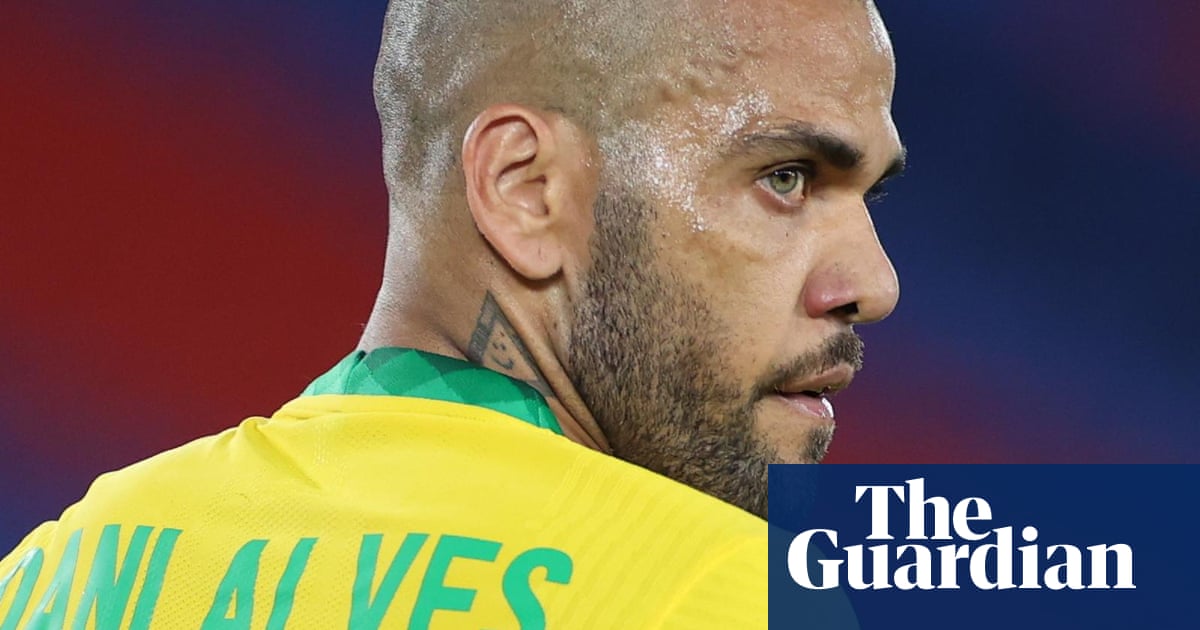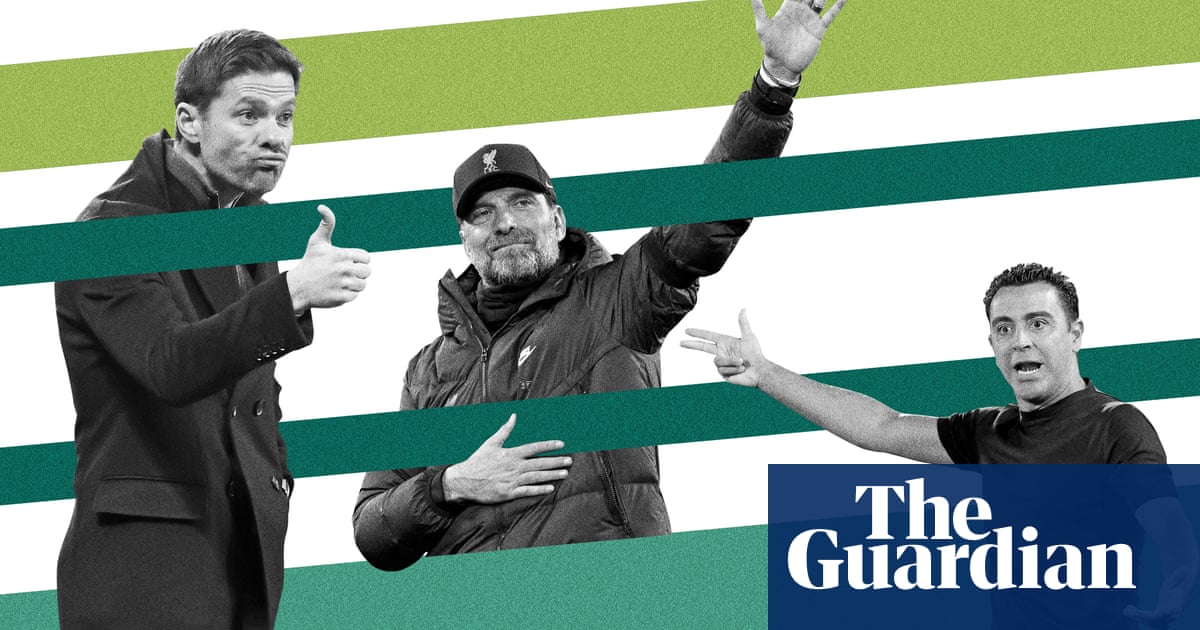
The first emotion has to be of sympathy for the victim, the young woman who was raped by Dani Alves in a nightclub bathroom in Barcelona in the early hours of 31 December 2022. The details of the case, the verdict rendered all the more chilling by the legal terminology in which it is couched, are horrifying: “There was violence to force the victim to have sexual relations.”
There is the horror the victim endured, the appalling nature of the attack and the difficulties she must have endured in the months that have followed and that she will continue to endure. But because of Alves’s fame, that strange – ultimately trivial – sense that we “know” celebrities, there is also feeling of shock, and of betrayal.
How can we watch clips of the great Barcelona in the same way now? How can we watch his low, scudding free-kick against Atlético in 2009-10, the absurd half-volley against Getafe in 2010-11, the first-time angled strike against Real Madrid in 2011-12, without thinking of what he became?
That is a feeling that will last far longer than the four and a half years he has been sentenced to. Alves, whose lawyer has said they will appeal, was a key part of Pep Guardiola’s Barcelona, technically gifted, explosive and unorthodox in just the right way. There’s a reason Lionel Messi called him the greatest full-back in the world.
We never know them, of course. We see footballers play, we watch how they behave, we analyse what they say and we project on to them how we would like them to be.
Football is a great soap opera and so we create our own cast of snarling villains, lionhearted warriors and plucky dribblers. Few are granted the luxury of nuance: players and managers become goodies and baddies, lightly illustrated cut-outs. Perhaps the reason this case has come as such a shock is that – at least to outsiders, as the vast majority of us who watch football ultimately are – Dani Alves seemed like one of the good guys.
That he was a brilliant footballer is beyond doubt. The legend has it that when he was six, playing as a winger, his father decided he didn’t score enough goals and so moved him to right-back, where he continued to play much like a winger. There were questions about his defensive capabilities but after moving to a Barcelona team that protected possession as no side ever had, it didn’t much matter. He may not have been the perfect right-back but he was the perfect right-back for that team, his sallies on the outside creating cover for Messi to dart inside, his bursts from deep vital to breaking massed set defences.
His list of honours is remarkable: he accumulated 43 trophies across his career – league titles in Spain, Italy and France, three Champions Leagues, two Europa Leagues, regional trophies in Brazil, two Copas América – which, depending on exactly what you count, makes him either the most successful player of all time or second behind Messi.
But it wasn’t just his talent. There was a sense that he played with a spirit of adventure, that he had fun. Whenever he got off the Brazil team bus, he seemed to be carrying a drum or a tambourine. Off the pitch, in interviews, two things always stood out: his enthusiastic energy and his laughter. He described himself as “good crazy”. Sid Lowe aptly termed him “a footballing Sonic the Hedgehog”.
Alves played with dash and flair, was intensely competitive and seemed popular – even if there were murmurings in his second stint at Barcelona that he might not be the best person any more for dressing-room morale. And so we projected on to him the image we wanted: the happy-go-lucky attacking Brazilian full-back, the heir to Nílton Santos and Júnior and Cafú and Roberto Carlos, but one fortunate enough to exist in an age in which the role of a full-back was essentially as much to do with attacking as defending.
That’s what we wanted to believe, and that’s why it feels so sickening to learn that, even if there was some truth to that image, there was also another side to Alves, a side that, in the words of the judgment, “grabbed the complainant, threw her to the floor” and raped her.
“Show me how you play,” the Uruguayan essayist Eduardo Galeano said, “and I’ll tell you who you are.” It’s an aphorism with some validity: certain aspects of character are revealed on the pitch. Will you put your head in where it hurts? Can you handle adversity? Are you focused on the team or on your own concerns? To what extent do you bend the laws to gain an advantage? But it’s only some aspects, because there is a world outside football and it is usually complicated and often unpleasant.
We don’t know players at all, not really.












